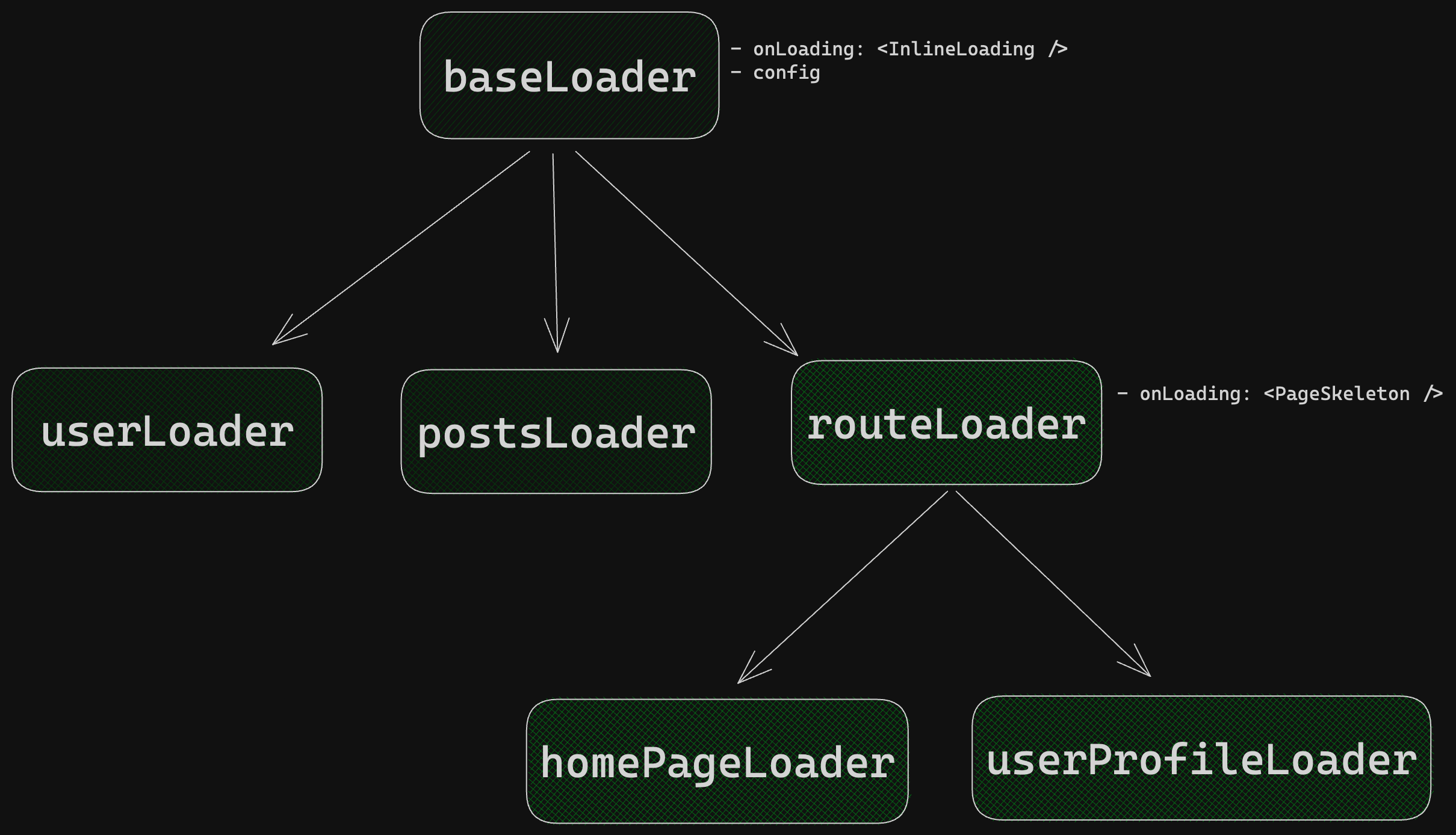Extend
You can extend existing Loaders. This lets you inherit and overwrite properties from an existing Loader.
Example
const parentLoader = createLoader({
onLoading: () => <div>Loading...</div>
});
const childLoader = parentLoader.extend({
useQueries: () => ({...}),
onError: () => <div>Error</div>,
}).extend({
transform: () => ({...}),
}).extend({
onLoading: () => <div>Overwritten loading...</div>,
});
Separation of concerns
Its up to you how much you want to separate logic here. Some examples would be...
- Co-locating loaders in a shared folder
- Co-locating loaders in same file as component
- Co-locating loaders in same directory but in a separate file from the component
I personally prefer to keep the loaders close to the component, either in a file besides it or directly in the file itself, and then keep a base loader somewhere else to extend from.
Creating a loader hierarchy
You can extend from any loader, including loaders that have already been extended. This allows you to create a hierarchy of loaders that can be used to share logic between components.

Tips
.extend will not merge what two separate useQueries returns.For example, you cannot just inherit the deferredQueries, you must either inherit or overwrite the whole useQueries argument.
You can extend as many times as you'd like. You can use this feature to easily inject reusable snippets, like transformers.
type QueryRecord = Record<string, UseQueryResult<unknown>>;
export const transformData = {
transform: (data: {
queries: QueryRecord;
deferredQueries: QueryRecord;
payload: unknown;
}) => {
// handle transformation in generic way
},
};
const loader = createLoader({...}).extend(transformData);